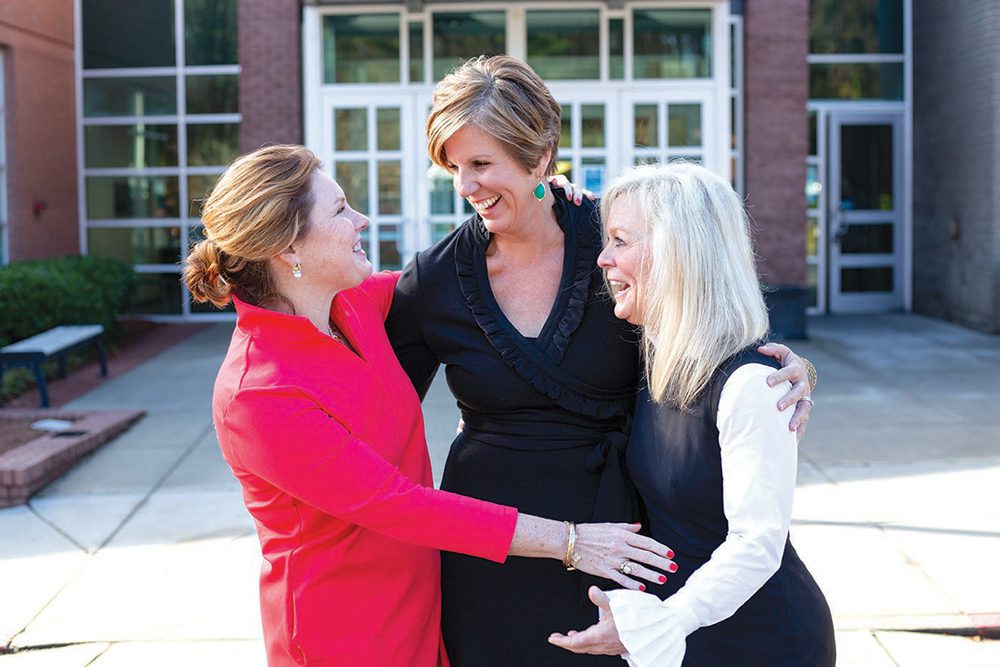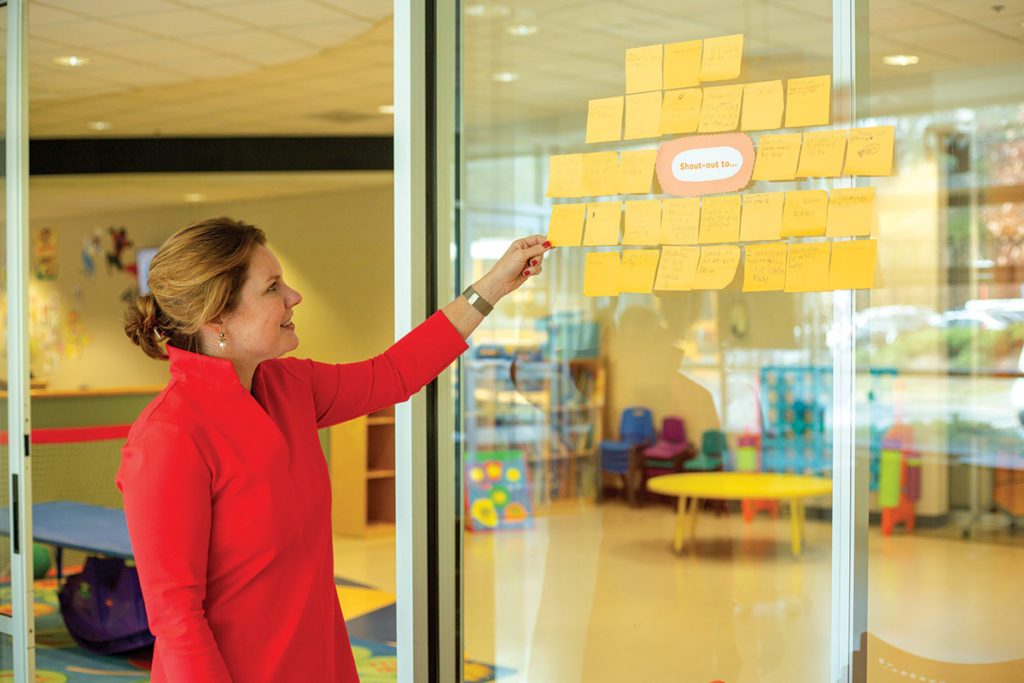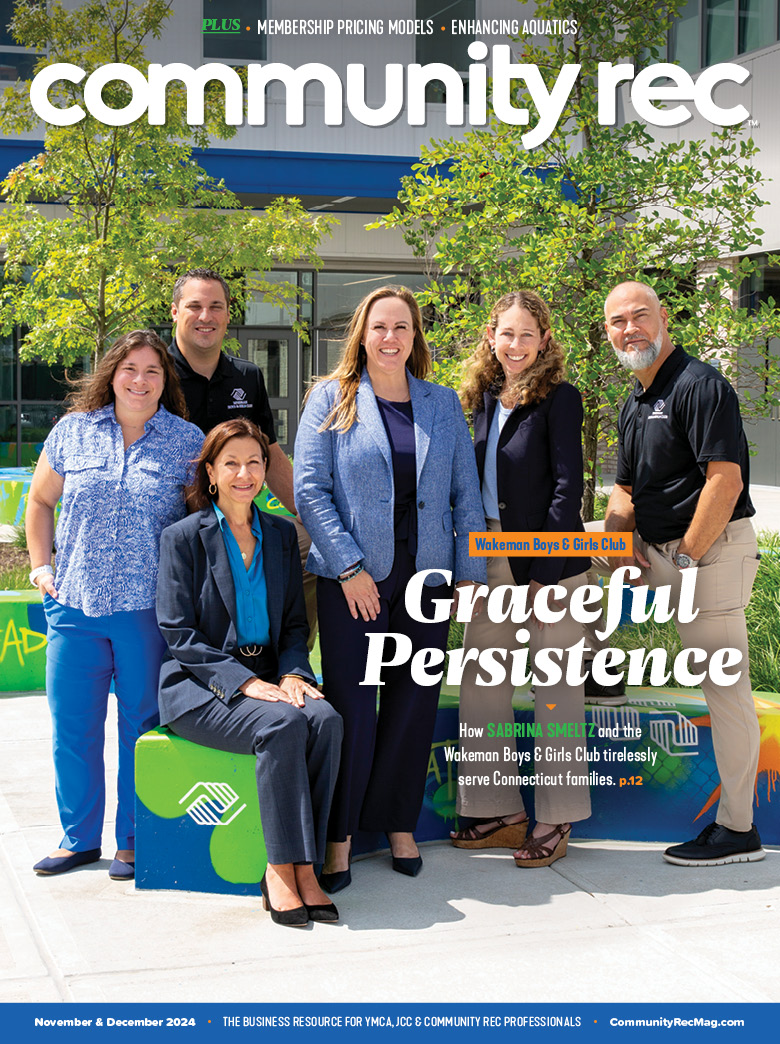Thinking and operating like a 165-year-old start-up with Lauren Koontz and the YMCA of Metro Atlanta.
The YMCA of Metro Atlanta is standing at the intersection of the past and the future. Lauren Koontz, the first woman president and CEO of the organization, has been leading the Y since 2019 with most of that time focused on navigating the COVID-19 pandemic and serving those who need the Y most.
With 20 community wellness centers, 13 early childhood learning centers and two residential camps, the Atlanta Y uses its mission of building healthy minds, bodies and spirits to champion communities where everyone belongs.
Over the last few years, Koontz shared the Y has been exploring these questions:
- What does building a healthy mind, body and spirit — with equity at the heart of our work — mean in 2023 and beyond?
- How do we intentionally program for holistic wellness and health equity?
- How do we create spaces and experiences that foster belonging?
- What is the role of the Y — as a community anchor institution — in addressing critical community issues that impact whole person well-being?
“The YMCA of Metro Atlanta is facing these questions head-on and partnering with aligned organizations — healthcare systems, municipalities, other not-for-profits, the philanthropic community, etc. — to create an ecosystem of care that exists within the walls of the Y and beyond,” said Koontz. “We’re not interested in being a place where a member has a ‘timeshare on a treadmill.’ We want the Y to lead, convene and collaborate to help people live more connected and healthier lives.”
Throughout the Atlanta Y’s 165-year-old history, one if its biggest challenges, like many, has been navigating the COVID-19 pandemic. While it’s prompted a lot of changes, Koontz described it as a turning point for the organization because of how the team responded.
“Like many organizations, we went from business as usual to all of our sites — like childcare and wellness programs — being shut down overnight,” said Koontz. “How we reacted to this was the moment that defined who the Y would be, and how we would show up for the Atlanta community now and in the future. Within two weeks of our doors being closed, we stood up two critical COVID-19 relief programs: childcare for those working on the frontlines of the pandemic and food distribution.”
Because of the Atlanta Y’s history in providing early learning, afterschool and day camp programs, staff had the knowhow on safely operating programs at the Y for community members who were unable to work remotely — doctors, nurses, EMTs, police officers and firefighters.
The Y offered childcare to the employees of seven major hospital systems across Atlanta. At the same time, it converted spaces in its facilities to create a massive food distribution system. Koontz shared the Y worked with 65 partners — from the Atlanta Community Food Bank and the Atlanta Braves to local restaurants and churches — to distribute 600,000 meals from a Y in Atlanta between March and December 2020.

“We realized to offer these important community programs we needed to be agile and adaptable,” said Koontz. “There wasn’t a manual on how to do this, but as a community-impact organization we felt compelled to step up and into this moment and serve those who needed us most. That decision — to lean into what we could do, instead of being consumed by what we couldn’t do — was empowering for our team members, and we have never looked back. We now think like and operate like a start-up, albeit a 165-year-old one.”
A great example of this is how the Y opened two new community wellness centers during the pandemic. These include the YMCA at Morehouse School of Medicine Community Wellness and Fitness Center, and the YMCA at Good Samaritan Health Center. Both are located on Atlanta’s westside, a community that has been underinvested in for decades.
A Commitment to Atlanta’s Westside
Koontz explained the residents of Atlanta’s westside community have a life expectancy of 10 to 15 years less than those who live just a few miles away in more affluent areas of the city. “We know poverty, lack of access to healthcare, homelessness, language barriers and unemployment are among the social determinants of health predisposing low-income communities to adverse health outcomes,” said Koontz. “Our commitment to Atlanta’s westside community is demonstrated by our strategic priority on health equity, which is to address the systemic and root causes of health disparities. In doing this work, we lead with education and outreach, and provide connections to health services and resources.”
The Y at Good Samaritan Health Center is an example of the organization’s commitment to health equity and working in partnership with a local, trusted healthcare provider. Patients of the Good Samaritan Health Center and community members are invited to learn and commit to healthy living by participating in the Y’s signature Coach Approach program to improve dietary habits and increase physical activity. Through one-on-one sessions with a personal trainer and small group curriculum-based nutrition education sessions, the program targets physiologic outcomes — body fat, blood pressure, etc. — and psychological outcomes — self-efficacy, physical self-concept and total mood disturbance.
Also located on Atlanta’s westside is the Y at Morehouse School of Medicine, a collaboration Koontz described as special. “It’s a case study for community partnership and illustrates one of the many positive outcomes possible when we explore opportunities that extend beyond the traditional Y model,” she added.
The Y at Morehouse School of Medicine is designed with students and faculty from Spelman College, Morehouse College, Clark Atlanta University and Morehouse School of Medicine in mind, and provides needed access to holistic health and wellness services for westside residents.
“These Ys are the bridge between medical care and community outreach,” said Koontz. “They are focused on positively impacting social determinants of health and empowering individuals to have the knowledge and resources to live their lives in healthier and more connected ways.”
With equity — and specifically health equity a core tenet of the Y’s path forward — these collaborations are both a promise and a stake in the ground for the work the Y will do to advance preventative health and address chronic disease management. “We understand we must continue to innovate, iterate, adapt and evolve to be a relevant organization,” said Koontz. “We don’t subscribe to the idea of doing something because ‘it’s always been done this way.’”
Moving Out of the Comfort Zone
This start-up mindset is a testament to Koontz’ journey to the YMCA movement. Prior to the Y, she worked in sports marketing and management but found she really wanted to be part of organizations that focused on creating positive change and systemic impact in communities, especially for youth.
Koontz joined the YMCA of Metro Atlanta as the chief development officer in 2012. In her initial role, she was focused on raising philanthropic funds. During that time, the Y provided more than $5 million annually in financial assistance to ensure access and opportunity to all who wanted to be part of the Y’s programming and centers.

In 2016, Koontz was asked to take on a new role as the executive vice president with a portfolio that included early childcare, youth programs and branch operations. She approached the next three years with a deep desire to learn and grow with an overflowing sense of humility and gratitude. Ultimately, in 2019 she was offered the opportunity to become the CEO of the organization, the first woman to do so in the Y’s 165-plus year history.
“A key turning point in my career was moving out of my comfort zone — which was leading philanthropic efforts for the Y — to rolling up my sleeves and learning the operational and program side of our organization,” shared Koontz. “I now realize there is no linear path to a certain role. Instead, I would advise individuals to continually look to expand their skills sets and experiences so they have a wide-ranging and unique perspective.”
Looking ahead, Koontz added the YMCA of Metro Atlanta is proud of its history, but it’s not bound by it. The start-up mentality will continue to push the Y and its team forward into the future to continue providing for the community.
“We are stewards of an organization that has done amazing work, and we recognize it’s our role to ensure the Y continues to adapt and evolve to be a responsive community-serving organization,” said Koontz. “I am most proud of our team members in every role across the organization. They are living embodiments of our values of caring, honesty, respect and responsibility.”
Photos by Heather Hartmann.










